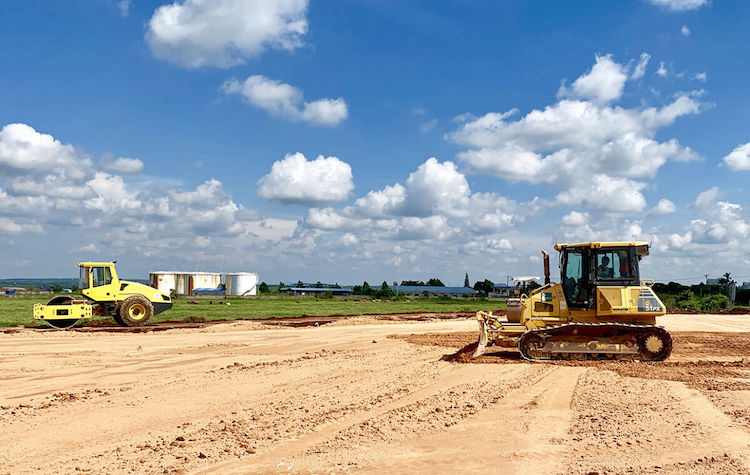Pilot use of the K coefficient for determining land prices
HoREA has suggested that instead of engaging consultants to estimate land values using valuation techniques, Ho Chi Minh City should test the use of the K coefficient.

HoREA proposed the land valuation approach entails two steps—"land valuation" and "land price appraisal"—to guarantee conformity with market-standard land pricing.
>> Law revised to apply market-based approach in valuing land price
HoREA asserts that the four various land valuation methods used in the current regulations for determining land use fees and rentals for commercial housing projects have some shortcomings, particularly the excess approach. This approach entails two steps—"land valuation" and "land price appraisal"—to guarantee conformity with market-standard land pricing.
The Department of Natural Resources and Environment first employs a land value expert based on typical market land prices. Yet, due to possible risks, several consultants are declining to take part in the process.
The Director of the Department of Finance serves as the Standing Vice Chairman of the Provincial Land Price Appraisal Council, which is presided over by the Chairman of the Provincial People's Committee. In the second phase, the Department presents the property to the council for appraisal. It takes a long time, and there may be legal repercussions.
HoREA contends that this system still fails to deliver accurate findings as determined by experts, and that it poses legal dangers to officials, employees, state officials, and other relevant parties. If two land valuation consultants employ the same methodology, their conclusions could vary by about 17%.
The Department of Finance may reject the project's "land valuation" results, resulting in a major loss of time (at least 3 years) and business investment prospects. In addition, the two-step process may result in a division of implementation rights.
The existing land use charge is also a concern because neither state agencies nor enterprises are aware of it, which makes it challenging to determine the effectiveness of investments and recruit international investors.
This also puts a burden on homebuyers, as the cost of compensation for site clearance and land use fees can significantly impact the price of apartments, townhouses, and villas.
In order to eliminate legal concerns, save time, and produce more accurate results, HoREA advises using the K coefficient as a tool for figuring out land prices.
According to Ho Chi Minh City's suggestion, all real estate and commercial housing projects, including those with a land value over 30 billion VND, shall use the land price adjustment coefficient approach. This coefficient should be applied based on the kind of commercial housing and real estate project, such as high-end, mid-range, or cheap housing developments, as well as the precise location of each project in areas 1, 2, 3, 4, or 5. This will facilitate choosing the proper "land price adjustment."
>> Evaluation of land prices - key to a transparent market
The proposal to test the K coefficient for determining land usage fees and land rents, in Mr. Le Hoang Chau, Chairman of HoREA’s view, is a step in the right direction toward a more open real estate market. The lack of a fully developed and real-time updated "Big data" system for gathering precise and comprehensive market data on each land plot's value area, for example, remains a barrier to adoption. Moreover, buyers and sellers frequently provide tax authorities with lower transaction prices than they actually charged, which results in an erroneous database. Furthermore, the real-time updating of input data is hampered by constrained state budgets and technology.
Despite these shortcomings, HoREA recommends that Ho Chi Minh City pilot the application of the K coefficient for calculating land use fees and land rents for all land plots and land parcels. This move aligns with the city's e-government goals and efforts to implement Project 06, which involves issuing personal identification codes and integrating information into a large database.
Additionally, this proposal aligns with the roadmap for the development of the Property Tax Law and mandatory non-cash payment in real estate transactions. HoREA believes that this proposal will help make the real estate market more transparent.








